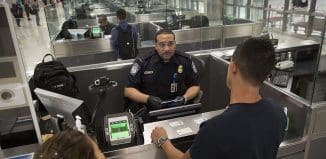Police opens database to civilians to mend trust
This post is also available in:  עברית (Hebrew)
עברית (Hebrew)
 A few days ago i-HLS reported on a wide-scale modernization process that’s taking place these days in the WestMidland police force in England as part of a five-year plan. The plan’s goal, as was reported, is to do a sort of system reformation to the local police force in order to make the work more efficient on one hand, and to improve relationship between officers and the citizens they protect on the other. It appears, then, that the Louisville Metro police in Kentucky, U.S., isn’t falling behind in this matter and has decided to make itself accessible to citizens by opening to the public three major databases: a list of commited hate crimes, personal details on police officers and assault cases against officers.
A few days ago i-HLS reported on a wide-scale modernization process that’s taking place these days in the WestMidland police force in England as part of a five-year plan. The plan’s goal, as was reported, is to do a sort of system reformation to the local police force in order to make the work more efficient on one hand, and to improve relationship between officers and the citizens they protect on the other. It appears, then, that the Louisville Metro police in Kentucky, U.S., isn’t falling behind in this matter and has decided to make itself accessible to citizens by opening to the public three major databases: a list of commited hate crimes, personal details on police officers and assault cases against officers.
Opening a database to the public’s watchful eye is a major step on the road to transparency towards the people the police force serves, which is meant to increase civilians’ trust in the police. Along with revealing the databases, the U.S. goverment is planning on taking further steps to build trust in order to better the fractured relationship between the two sides. Last May the Task Force on 21st Century Policing, which was appointed by president Obama in order to answer this issue, issued it’s final report in which they outlined six areas that the police must do better on: building trust and legitimacy, better policy and supervision, technology and social network, urban policing and decreasing of crime rates, training and education for officers and, finally, personal safety and medical care.
For the most part, the final comitee report is dedicated to specific methods the police force must apply. For example, it states that the police must “law enforcement agencies should be encouraged to collect, maintain and analyze demographic data on all detentions.”
On technology it states that the police must upgrade their use of social networks as well as develop non-lethal ways to make arrests of very violent suspects.






























